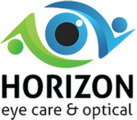
Diabetic Eye Disease Awareness Month
Published:
November is Diabetic Eye Disease Awareness Month, a time when the spotlight shines on the significant risks that diabetes poses to eyesight and the crucial importance of regular eye exams. It's a month dedicated to educating the public about the impact of diabetic eye diseases and encouraging those with diabetes to take proactive steps in preserving their vision.
Diabetes is a condition that affects millions worldwide. One of its lesser-known complications is the potential for severe eye conditions, such as diabetic retinopathy, diabetic macular edema, cataract, and glaucoma. These conditions can lead to significant vision loss and even blindness if not detected and treated early
Raising awareness is the first step towards healthier vision for everyone. Here are some key points to help raise awareness and encourage people living with diabetes to take care of their eye health:
- Regular Eye Exams: Regular eye exams are essential in the early detection and management of these conditions. An eye exam can reveal changes in the blood vessels of the retina, which may indicate the onset of diabetic retinopathy. Early intervention is key to managing the disease and can often prevent further deterioration of eyesight.
- Blood Sugar Control: Keeping healthy blood sugar levels can significantly reduce the risk of developing diabetic eye disease.
- Manage Blood Pressure and Cholesterol: Keep these under control will help prevent damage to the blood vessels in the eyes.
- Know the Symptoms: If you’re experiencing blurred vision, floaters or sudden vision loss seek professional attention immediately.
During Diabetic Eye Disease Awareness Month, healthcare providers, advocacy groups, and communities come together to spread the word about the importance of eye health in diabetes management.
For those living with diabetes, this month serves as a reminder to schedule that all-important eye exam. It's not just about checking your vision; it's about safeguarding your quality of life. Because when it comes to diabetic eye diseases, what you can't see can hurt you.
So, let's use this month to spread awareness, encourage our loved ones to get their eyes checked, and support research and initiatives aimed at combating diabetic eye diseases. Together, we can shine a light on this issue and help protect the vision of millions around the world.
Remember, your eyes are an integral part of your health. Don't take them for granted.
What to expect from diabetic-related eye exams?
When it comes to managing diabetes, regular eye exams are a crucial aspect of maintaining overall health. For individuals living with diabetes, these exams are more than just checking for the right prescription for glasses; they're a preventative measure against potential vision loss. So, what should one expect from a diabetic-related eye exam?
Diabetic eye screening is non-invasive. You will be given eye drops which will blur your vision. These may sting a little when they are administered, but this will pass within just a few moments. Once your vision is blurred, you will be asked to rest your head onto a device and stare down a lens. This leads to a camera which will take images of the backs of your eyes so that your eye doctor can assess the structures, which include the retina, for any abnormalities. You will see a flash when each image is taken, but at no point should you be in any pain.
You will also be given a visual acuity test where you will be asked to read letters off a chart a short distance away from a card held in front of you.
The information that your eye doctor obtains from your examination will be able to tell them if you are experiencing any of the signs of diabetic retinopathy. If so, they will discuss the best way to get your condition under control.
Your eye doctor will give you more specific information based on your individual circumstances.
Schedule an eye exam today and ensure that your vision remains clear for all the beautiful moments life has to offer.
Let's make Diabetic Eye Disease Awareness Month a time of action and prevention. Your eyesight is worth it!
